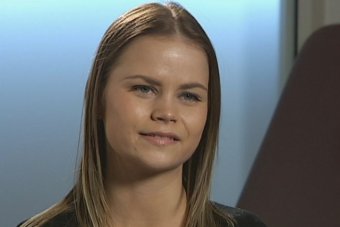Young people and their GPs are too often ignoring the signs of bowel cancer because it is seen as an illness only older people get, experts have warned.
Bowel Cancer Australia released the results of a survey of people under age 50 who were diagnosed with the disease, which found four out of five people who developed the illness before age 50 no had idea they could be at risk.
This was considered important as many early onset cases were not picked up until they were far advanced, leaving patients with fewer treatment options.
Gastroenterologist Cameron Bell said specialists were concerned young people and GPs were ignoring important symptoms because bowel cancer was seen as something only people aged over 50 get.
“Young people have to realise that symptoms like bleeding, abdominal pain and change in their bowel habits could be something sinister and shouldn’t be ignored,” Dr Bell said.
“And GPs need to recognise the same thing.”
Bowel cancer fast facts
- One in 12 people will develop bowel cancer.
- 1,091 people under the age of 50 are diagnosed each year.
- 90 per cent of cases can be successfully treated if found early.
More than 1,000 Australians aged under 50 will be diagnosed with bowel cancer each year and the numbers are increasing.
“The important thing about bowel cancer is to catch it early,” Dr Bell said.
“A higher proportion of these young cancer patients had stage three and four, that is more advanced disease, at diagnosis.”
Experts were not sure why the number of cases was rising but there were theories, he said.
“The lifestyle factors of interest in this young group are sedentary lifestyles, high intake of fast food, poor diet, weight excess, lack of exercise and alcohol,” Dr Bell said.
Diagnosed with bowel cancer at age 22
Crystal Pietikainen went to the gym four times a week and ate well, so it was a surprise when she was diagnosed at age 22 with stage two bowel cancer.
“I didn’t look like someone who had cancer,” she said.
Her diagnosis came after months of trips to various doctors with unexplained abdominal symptoms.
She had no family history of the disease and she had no other illnesses.
“I did go to a few doctors and basically a lot of the time it was put down to irritable bowel syndrome,” she said.
For Ms Pietikainen, being diagnosed with a “disease of the aged” has been challenging.
Medical staff often thought it was her mother who was ill.
“Being diagnosed at such a young age can be quite isolating. None of my friends have cancer,” she said.
“Mentally I still feel 22, physically I feel like I have ten years on top of being 22.”
Ms Pietikainen said she wanted other young people to know there was support available.

